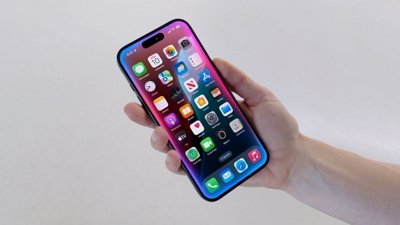The GSMA and 17 mobile operators plan to develop a universal charging solution that would appear by January 1, 2012. Micro-USB will be the common charging interface.
The group includes AT&T, LG, Motorola, Nokia, Orange, Qualcomm, Samsung, Sony Ericsson, T-Mobile, and Vodafone. According to the GSMA, which represents the interests of GSM operators, the change would make things simpler for the consumer, who could use the same charger with all future phones and charge anywhere with any available unit.
The chargers will boast a 4-star or higher efficiency rating in order to be three times more energy-efficient than an unrated charger and consume 50% less stand-by energy. The GSMA estimates greenhouse gas reduction by 13.6 to 21.8 million metric tons as the replacement rate for existing chargers decreases.
Noticeably absent from the list of supporters is Apple. Its ubiquitous dock connector was introduced on the third-generation iPod in 2003 and has appeared on every iPod and iPhone since. By the time of the 2012 deadline, the dock connector will have been around for almost a decade.
In a possible nod to the iPhone's exemption, the GSMA targets only "majority" adoption by 2012. The BBC notes that the move may be a response to pressure from the European Commission, which has observed more than 30 different kinds of chargers in use across the European Union.
 Zach Spear
Zach Spear







 Malcolm Owen
Malcolm Owen
 Amber Neely
Amber Neely

 Wesley Hilliard
Wesley Hilliard


 William Gallagher
William Gallagher










115 Comments
The USB port as is or the mini is a universal plug, Several products from flashlights, to cell phones use the USB port to charge up. The computer is ubiquitous, and is the place from which charging can come from. If not the computer there are plenty of USB charges out there. All we need from manufactures is an adapter that fits on the end of the USB cord as a transitional device. By next year we could all eliminate most of the wall rat energy drains.
It is the those wall rats, or transformers that are the problem, not the cord or the connection. Transforming the connectors with adapters the way we use to use adapters to change from serial to USB. There are plenty of third party manufacturers that could and will do this if given the opportunity.
Since Apple products use USB to charge anyway, Apple is ahead of the game. Leading by domination.
This is welcome news. It's good to see the entire industry work together to achieve a common goal.
This is welcome news. It's good to see the entire industry work together to achieve a common goal.
I dunno, better this than not this, but it seems to me like it's way overdue. That the industry is only able to get together on standards, when under pressure from outside sources, and just as the technology is going obsolete anyway does not speak *that* well for the industry IMO.
The way the article talks about energy savings is a bit weird also. Changing the type of plug to mini USB shouldn't have any effect on energy savings. It almost sounds like what they are really doing is changing the "brick" part to a smaller, more energy efficient USB connected thing, (like Apple has been doing for years and years). At least that's the only way I could see any energy savings, but I am hardly an expert in such matters.
Since Apple products use USB to charge anyway, Apple is ahead of the game. Leading by domination.
The point would be that any charger could plug into any phone AT THE PHONE END. It doesn't really matter if it's USB or a wall adapter, it's whether you can connect it to any model phone.
Apple will resist this as much as possible. They LOVE their proprietary connections (display ports, ac adapters, iPod/iPhone connectors) it's a great way to nickle and dime their customers.
Want to connect to HDMI? You'll need an Apple brand converter. Oh, you lost or broke your power cord? $79 please.
I dunno, better this than not this, but it seems to me like it's way overdue. That the industry is only able to get together on standards, when under pressure from outside sources, and just as the technology is going obsolete anyway does not speak *that* well for the industry IMO.
The way the article talks about energy savings is a bit weird also. Changing the type of plug to mini USB shouldn't have any effect on energy savings. It almost sounds like what they are really doing is changing the "brick" part to a smaller, more energy efficient USB connected thing, (like Apple has been doing for years and years). At least that's the only way I could see any energy savings, but I am hardly an expert in such matters.
Apologies to cowhide & Virgil if I'm wrong, but isn't the idea that the mini-USB will be the connection to the phone, not the power source? I wish Apple would do something like this, for when you are in need of power in a pinch, like the airport.